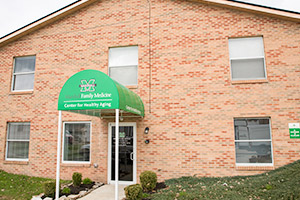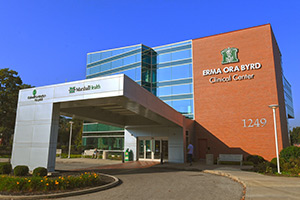Although a cure does not exist for Alzheimer's, treatment options continue to improve as we learn more about this disease and the science behind it.
According to the Center for Medicaid and Medicare Services, antiamyloid-beta monoclonal antibodies are laboratory-generated proteins which bind to a specific substance in the body. The effect of this is to mark the undesired substance for destruction by the immune system. In the case of dementia-focused treatments, these antibodies target amyloid accumulation in the brain, thought to be a cause of Alzheimer’s disease.
By reducing amyloid, these treatments have the potential to slow progression of the disease. At present, the Food and Drug Administration has approved the following monoclonal antibody treatments for Alzheimer’s: lecanemab (under the brand name Leqembi®) and donanemab (under the brand name Kisunla™).
Each therapy is subject to its own specific inclusion and exclusion criteria. Referring physicians are encouraged to review drug-specific criteria included on this website. Patients are encouraged to discuss therapies with their primary care provider or call the Hanshaw Geriatric Center at Marshall Health at 304.691.1010.
Drug treatments for Alzheimer's are typically administered intravenously. Lecanemab is administered via a 60-minute infusion every two weeks. Drug-specific imaging is also required.
Most common lecanemab side effects include amyloid-related imaging abnormalities as well as infusion-related reactions and headaches. Lecanemab can also cause serious allergic reactions.
These do not represent all possible side effects associated with these drugs. Patients are encouraged to review the risks with their physician.
Medicare will cover FDA-approved monoclonal antibody treatments for Alzheimer's disease if the patient is enrolled in an approved registry. However, the cost of some imaging may not be covered by Medicare.
We encourage patients and family members to learn as much as they can about new treatment options and discuss them with your doctor. For specific questions, you may also contact the Hanshaw Geriatric Center at 304.691.1010.
Additional resources include:
To learn more about treatment options that may be available for your patients or to refer a patient for evaluation and treatment, please complete the form below or contact Dr. Lynne Goebel at Hanshaw Geriatric Center, 304.691.1010.
Clinical Interests:
Locations:
Clinical Interests:
Clinical Interests:
Locations:
Clinical Interests:
Locations:
Clinical Interests:
Locations:
Clinical Interests:
Locations:

A provider-based department of Cabell Huntington Hospital
659 Central Avenue, Rear
Barboursville, WV 25504
Phone: 304.691.6878

Lincoln Primary Care Center
7400 Lynn Avenue
Hamlin, WV 25523
Phone: 304.824.5806

A provider-based department of Cabell Huntington Hospital
Erma Ora Byrd Clinical Center
1249 15th Street
2nd & 3rd Floor
Huntington, WV 25701
Phone: 304.691.1000
ClinicalTrials.gov. 221AD301 Phase 3 Study of Aducanumab (BIIB037) in Early Alzheimer's Disease (ENGAGE). Available at: https://clinicaltrials.gov/ct2/show/NCT02477800?term=aducanumab&draw=2. Accessed February 1, 2020.
ClinicalTrials.gov. 221AD302 Phase 3 Study of Aducanumab (BIIB037) in Early Alzheimer's Disease (EMERGE). Available at: https://clinicaltrials.gov/ct2/show/NCT02484547?term=aducanumab&draw=2. Accessed February 1, 2020.
Albert MS, DeKosky ST, Dickson D, et al. The diagnosis of mild cognitive impairment due to Alzheimer's disease: Recommendations from the National Institute on Aging-Alzheimer's Association workgroups on diagnostic guidelines for Alzheimer's disease. Alzheimers Dement 2011; 7(3):270-279.
McKhann GM, Knopman DS, Chertkow H, et al. The diagnosis of dementia due to Alzheimer's disease: Recommendations from the National Institute on Aging-Alzheimer's Association workgroups on diagnostic guidelines for Alzheimer's disease. Alzheimers Dement 2011; 7(3):263-269.
Pfeffer RI et al. Measurement of functional activities in older adults in the community. J
Gerontol 1982; 37(3):323-329. Reprinted with permission of The Gerontological Society of America, 1030 15th Street NW, Suite 250, Washington, DC 20005 via Copyright Clearance Center, Inc.
If you or a loved one is experiencing new and progressive concerns with memory, language or behavior, the first best step is to consult with a doctor. Start with your primary care physician and consider requesting a referral to one of our geriatric specialists.